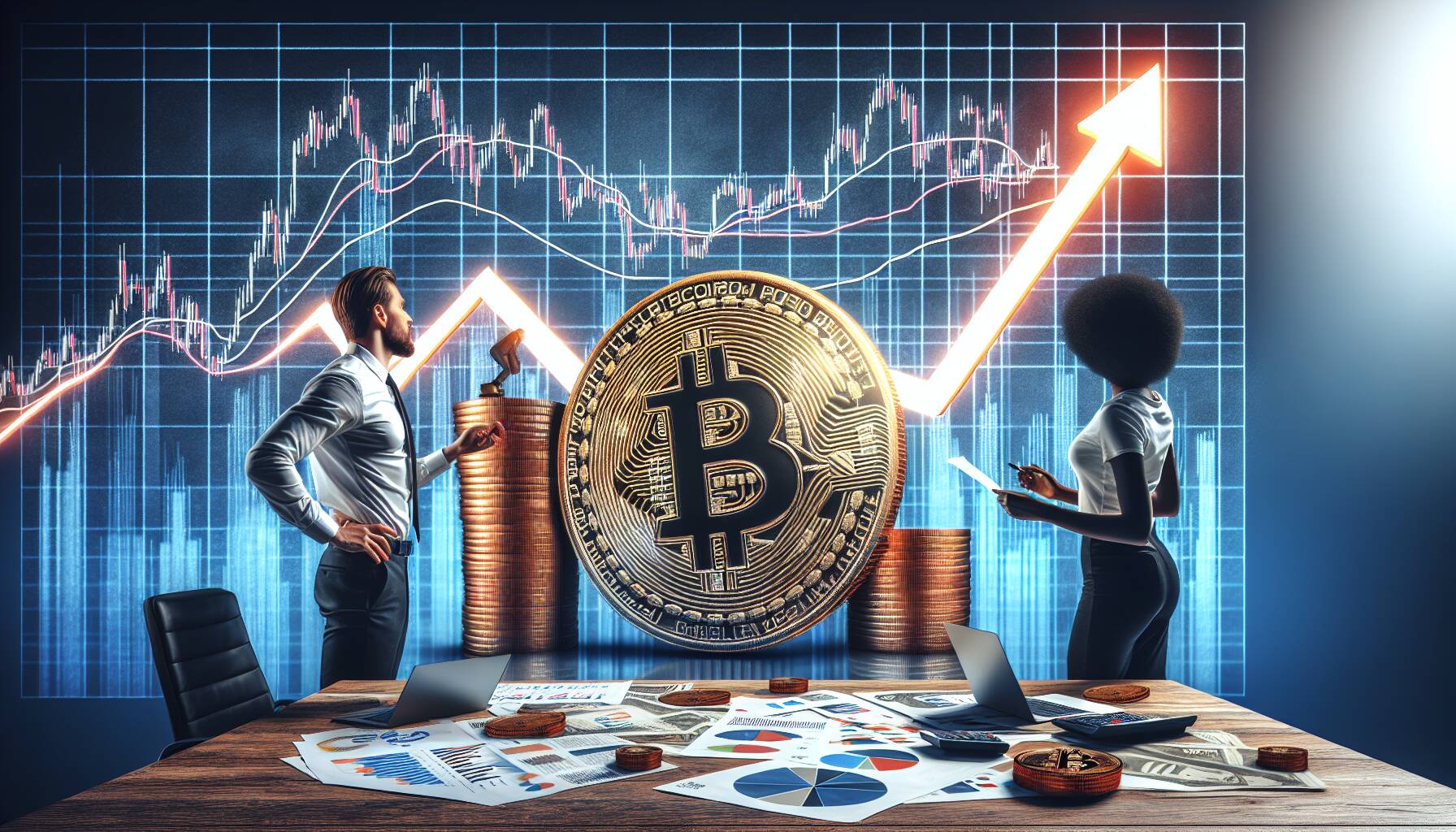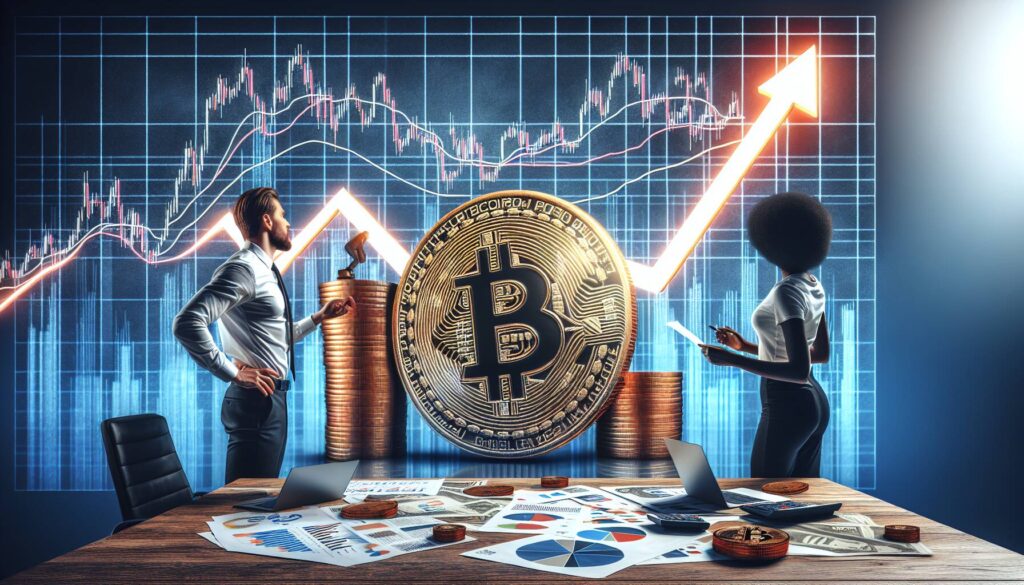The cryptocurrency market is holding its breath today as investors await the latest U.S. inflation report, which could play a pivotal role in determining the direction of Bitcoin (BTC) and other digital assets. Historically, the January inflation numbers have shown notable fluctuations, often influencing market sentiments as businesses reassess their pricing strategies at the start of the year. For instance, last January marked a turning point, breaking a streak of lower inflation readings, a trend some experts believe might repeat in 2023.
A higher-than-expected inflation rate could serve as a wake-up call, indicating that the Federal Reserve has more adjustments to make regarding interest rates. In a recent address, Dallas Fed President Lorie Logan emphasized that the central bank is taking a cautious approach, having already implemented significant rate reductions last year. On the flip side, a softer inflation report could boost risk assets like Bitcoin, as it may lower expectations for interest rate hikes, thereby easing pressures on the U.S. dollar and treasury yields.
“There’s anticipation that a lower inflation figure might spur demand, especially as major players in the market, like Japanese gaming firm Gumi, are eyeing substantial Bitcoin investments,” noted CoinDesk’s Omkar Godbole.
Despite the prevailing caution among U.S. traders—evident in the recent dip in Bitcoin’s Coinbase premium—demand for Bitcoin appears resilient. Notable players like KULR Technology Group have ramped up their holdings, and Goldman Sachs has significantly upped its stakes in Bitcoin and ether ETFs based on its recent 13F filing. Yet, as the market continues to show signs of fatigue, analysts are urging caution against mounting headwinds, including slowing crypto ecosystem growth and declining trading volumes.
As we await the inflation data, which will be released by the U.S. Bureau of Labor Statistics, attention will also turn to upcoming events like Kraken’s gradual delisting of several stablecoins and the anticipated launch of new blockchain projects. The interplay of macroeconomic factors and individual market movements will undoubtedly shape the trading landscape in the coming days, keeping many investors on high alert.

Impact of U.S. Inflation Report on Bitcoin and Cryptocurrency Markets
The upcoming U.S. inflation report plays a crucial role in determining the market position of Bitcoin and can significantly impact investors and consumers alike.
- Inflation Report Timing:
- Historically, January inflation figures show significant price movements.
- A higher-than-expected inflation report may suggest the Federal Reserve needs to adjust monetary policy.
- Market Reactions:
- A soft inflation report could lead to increased expectations for interest rate cuts, benefiting risk assets like Bitcoin.
- As consumers, understanding these market reactions can help in making informed decisions regarding investments and financial planning.
- Crypto Investment Trends:
- Institutions like Gumi and Goldman Sachs are increasing their exposure to Bitcoin, indicating strong demand.
- Investors should analyze institutional interest as a sign of confidence in cryptocurrency markets.
- Market Sentiment:
- Bitcoin’s Coinbase premium turning negative suggests U.S. traders are cautious ahead of the inflation report.
- This caution may reflect wider economic anxieties, impacting retail investors’ confidence and decisions.
- Overall Economic Context:
- The Trump administration’s tariffs may add inflationary pressures, complicating the financial outlook.
- Understanding these macroeconomic factors can help readers navigate their financial landscape more effectively.
- Upcoming Key Dates:
- Highlights of crucial crypto and economic events to watch throughout February.
- Being aware of these events can help investors anticipate market shifts and strategize accordingly.
Monitoring economic indicators like inflation can equip readers with knowledge to make timely and strategic financial decisions.
Inflation Insights and Bitcoin: A Market in Flux
The pending U.S. inflation report has captured the attention of both traditional and cryptocurrency markets, hinting at significant volatility for bitcoin (BTC) in the coming days. Much like the predictions around prior economic reports, this latest data could either breathe life into the beleaguered cryptocurrency or extend its downturn. If the inflation numbers come in higher than expected, it may indicate that further monetary tightening is necessary, which could put additional pressure on BTC prices. Conversely, a softer inflation report could ignite the risk appetite among investors, potentially positioning bitcoin as a more attractive asset class.
Competitive Advantages: Many analysts believe that a lower inflation reading could catalyze increased demand for risk assets, including cryptocurrencies. Companies are already demonstrating this trend, with notable investments being made by entities like Japan’s Gumi, which recently announced plans to invest significantly in BTC. Institutional interest, particularly from major financial institutions like Goldman Sachs, further indicates a growing confidence in the crypto market, potentially serving as a counterbalance to bearish sentiments triggered by economic headwinds.
Disadvantages and Risks: However, the crypto landscape remains precarious, with reports indicating a slowdown in the growth of the crypto ecosystem. Data from JPMorgan highlights a decrease in trading volumes, while a warning from BCA Research points to potential warning signs including record ETF inflows and the memecoin market’s feverish activity. These indicators raise concerns regarding the sustainability of the current uptick in interest, suggesting that market participants should proceed with cautious optimism.
Those most likely to benefit from a favorable inflation report are institutional investors and traders who have maintained exposure to BTC and related assets during this turbulent period. Larger entities with deeper pockets could absorb market fluctuations more effectively than retail investors. On the flip side, a soft inflation reading may pose challenges for conservative investors who typically favor stable returns, as this precarious balance in risks might trigger further volatility in the cryptocurrency market.
Ultimately, as the market stands on the brink of potentially transformative economic data, the next moves in the cryptocurrency space will reflect broader sentiments towards risk and investment confidence. Whether the outcome bolsters or undermines bitcoin’s appeal remains an unfolding narrative that both traders and investors will be watching closely.















